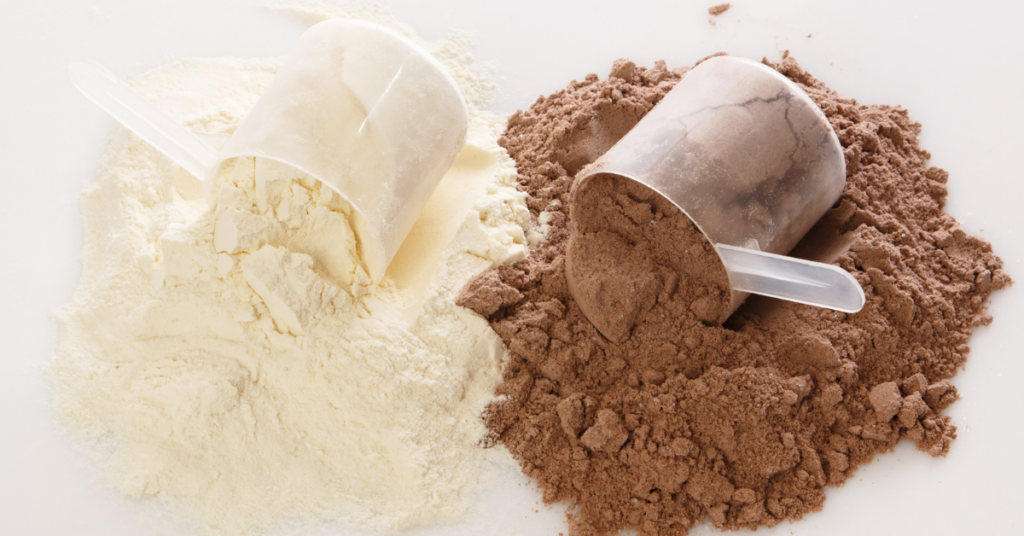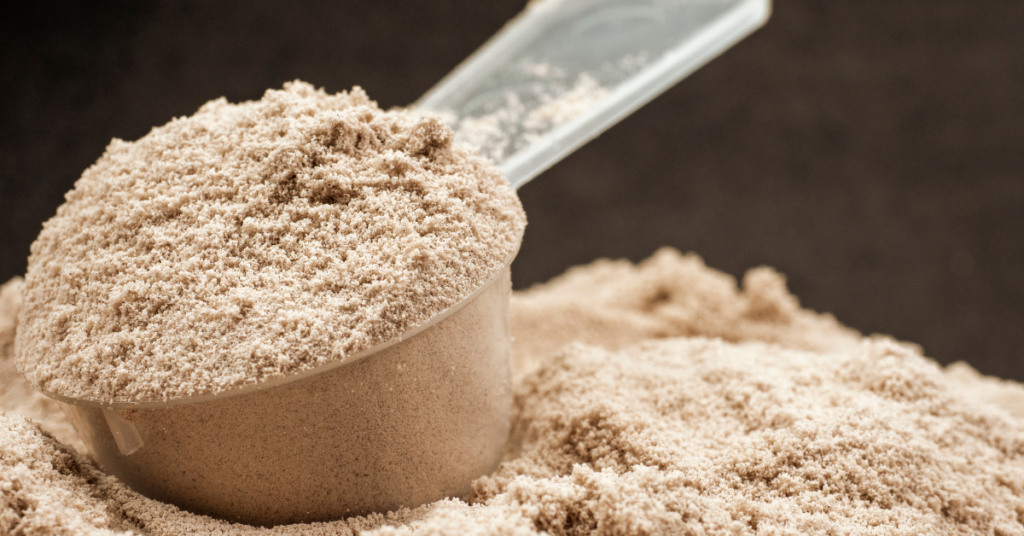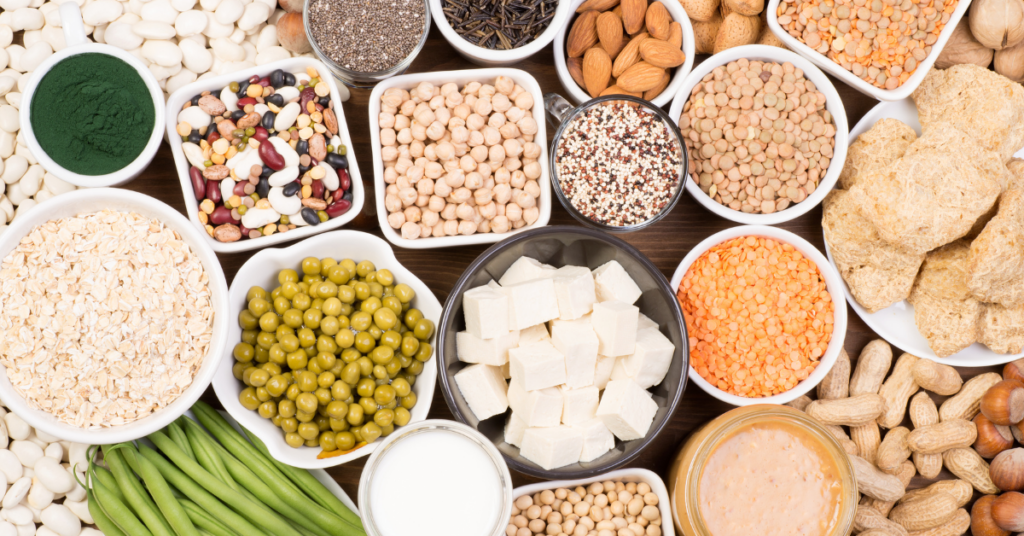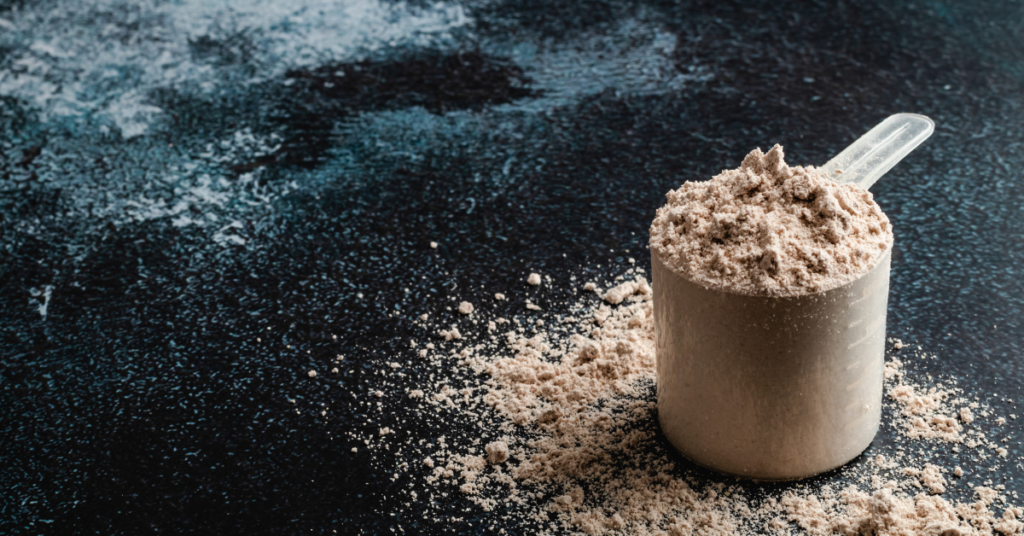In times of emergency, having a robust food storage system is essential for anyone. While staples like grains, canned goods, and dehydrated foods are commonly stocked, incorporating protein powder into your stockpile strategy can offer a valuable nutritional boost.
Adding protein powder to your emergency food store can significantly improve your chances of survival.
Protein powder can last for years, is easy to prepare, and can even come in a variety of flavors to suit your dietary needs.
The Importance of Protein Powder
Protein is an essential nutrient that plays a vital role in good health. It is present in every cell in our body.
It is needed for immune system function, cell repair, growth, and development. Our bodies can’t produce all nine essential amino acids, so we must obtain them from our diet.
The Nutritional Benefits of Protein Powder:
Complete and Easily Digestible Protein: Protein powder, derived from sources like whey, casein, or plant-based proteins, offers a complete amino acid profile. It supports muscle maintenance, repair, and growth, crucial in demanding situations that may require physical exertion.
High Nutrient Density: Protein powders typically have a high nutrient density, providing essential vitamins and minerals. They can help address nutrient deficiencies during emergency situations when fresh produce may not be readily available.
Convenient Source of Energy: Protein powder can be quickly and easily mixed with water or other liquids, making it an ideal emergency food option. It provides a concentrated source of calories, helping you meet your energy needs even when traditional cooking methods and meal preparation may not be possible.
Protein is especially crucial during emergencies when our bodies and minds experience unusual amounts of stress.
By including protein powder in our prepping food storage, we add another valuable layer to our protein sources, ensuring that our bodies receive the necessary nutrients for good health.
Protein powder is a convenient and versatile form of protein that can come from various sources, including plants, eggs, or milk, making it a valuable option for our emergency provisions. [1]
Protein Powder Is Valuable

Firstly, Protein Powder (Short: Pro powder) has a long shelf life and does not require cooking, allowing easy preparation in emergencies when fuel supplies are low.
Lightweight and Compact, protein powder can be easily transported in emergency kits or bug-out bags. Its convenience ensures that you can have access to a nutrient-dense meal replacement wherever you go.
While protein powders may come at a higher cost, it is a worthwhile investment for a valuable protein source that can last for several years when properly stored and rotated. Investing in high-quality protein powder can ensure you’re getting the necessary nutrients without compromising on quality during emergencies.
Incorporating protein powder into meals or beverages also provides a range of options for preppers, making it a valuable addition to any food storage.
Why Protein Powder Should Be in Your Prepping Pantry
Regarding reliable, portable, and long-lasting nutrition, protein powder should be a staple in every prepper’s pantry.
Its benefits range from lengthy shelf life and no need for cooking to many flavors and protein sources to cater to any dietary preference, making it a versatile asset in emergencies.
Long Shelf Life
Pro powder boasts a long shelf life, making it an ideal addition to any prepper’s food storage.
While the shelf life varies depending on the product, most unopened containers can last several years past the “best before” date.
Does not Require Cooking
Protein powder proves to be a stellar component in a prepper’s long term food storage due to its no-cooking requirement, providing a ready source of protein, particularly when fuel resources are scarce.
This is especially important when resources are limited during an emergency, and even small conveniences like cookware can become a burden. With protein powder, all you need is a liquid, and you can have a nutritionally dense meal or snack in minutes.
Variety of Flavors and Protein Sources

Protein powder is easy to store and comes in various flavors and protein sources. This makes it a convenient option for preppers who have specific dietary needs or preferences. From plant-based options like soy and hemp to animal-based options like whey and casein, there is something for everyone.
Moreover, protein powders can also come in flavors like chocolate and strawberry, which can be used to make shakes or added to meals. The sweet flavor of such pro powders can also serve as a morale boosting treat for preppers during a long-term disaster.
With so many choices available, preppers can ensure access to a protein source they enjoy and can easily incorporate into their food storage rotation.
Lightweight and Easy to Carry

Pro powder is a fantastic option for preppers looking for a lightweight, easy-to-carry protein source. Unlike canned or frozen protein sources, protein powder can be easily transported in various containers.
It can be added to meals or beverages on the go without cooking. In an emergency situation, having a protein source that doesn’t require cooking can be a lifesaver, as it can save valuable body fuel and prevent the need to light a fire.
Factors Affecting Protein Powder’s Shelf Life
The longevity of protein powder can be influenced by numerous elements, one of them being the type of packaging.
For example, compared to plastic tubs, which offer enhanced protection against air and moisture, plastic pouches are more susceptible to penetration from these elements.
Powder in cardboard packaging is the least favorable option, as it allows even more moisture and air to penetrate, reducing its shelf life. Storage conditions and the powder’s packaging can impact its longevity. High humidity is a common cause of spoilage, so I highly recommend storing it in a cool and dry place.
Furthermore, oxidation can weaken the powder’s quality, as fats in the powder can turn rancid. Proper storage can help prolong the shelf life, and it’s important to use up the product within a reasonable time frame to avoid any risk of spoilage.
How to Store Protein Powder to Extend Shelf Life
Proper storage of protein powder is critical to extend its shelf life. The ideal storage temperature is around 70°F with low humidity.
Protein powder should not be stored in the refrigerator or freezer as it may cause condensation and spoilage. If the protein powder comes in a pouch, it can be stored in its original packaging, but if it’s in a tub, the lid should be twisted on tightly after every use.
Always store protein powder in a cool, dark, and dry location, away from direct sunlight and moisture.
Remember to check the packaging date and the Best By date before purchasing the product. Taking the necessary steps to store protein powder properly can help them last several years and be a valuable addition to prepper food storage.[2]
How You Can Tell if Protein Powder Has Gone Bad
Recognizing the signs of spoilage is key to maintaining a safe and healthy stockpile.
Changes in Taste or Smell
One to determine if your protein powder has gone bad is by changes in taste or smell.
When protein powder starts to spoil, it can have a sour or off taste and unpleasant smell. This is because fats in the powder can oxidize and become rancid over time. If you notice any strange odors or flavors, it is best to discard the powder to avoid any potential health risks.
Presence of Clumps or Moisture
One way to tell if protein powder has gone bad is through the presence of clumps or moisture.
When exposed to air and moisture, protein powder can form clumps that make it difficult to mix with liquid. Clumps in protein powder may indicate that moisture has entered the container, causing the powder to clump together.
Storing protein powder in an airtight container is essential to prevent moisture from getting in and extend its shelf life as mentioned above. Suppose you notice clumps or moisture in your protein powder. In that case, it’s best to use it up quickly or discard it altogether to ensure you consume safe and effective protein powder.
Protein Powders Designed for Preppers
Protein powders, with their impressive shelf life and high nutritional value, have become a vital inclusion in the emergency supply kits of dedicated preppers.
Examples of Protein Powders Marketed for Preppers
Several protein powders are marketed for preppers but come with a hefty price tag. But preppers can consider plenty of other protein sources that are less expensive and readily available.
Nuts, beans, lentils, and hemp seeds are all excellent protein sources and foods that preppers should have in their storage.
It’s essential to explore all options and determine which sources of protein will suit a particular prepping strategy.[3]
Other Options for Less Expensive Protein Sources
Fortunately, there are many affordable alternatives to protein powder. [4]
- Peanut butter is an excellent source of protein and fat that can be used in many ways. A two-tablespoon provides 8 grams of protein.
- Eggs are also a great source of protein and can be used in many recipes.
- Edamame, black beans, and sunflower seeds are low-priced plant-based protein sources that can be added to dishes for extra protein.
- Sardines and canned tuna are budget-friendly options that provide high-quality protein.
- At the same time, Greek yogurt and cottage cheese are low-calorie dairy products that are high in protein.
- Whey protein powder is another affordable option for those looking to add more protein to their diet.
How to Incorporate Protein Powder into Your Prepping Rotation

It’s becoming more evident that having reliable sources of nutritious and long-lasting food is crucial for preparing for unexpected situations. As a result, knowing how to include protein powders in a prepping routine effectively has become a vital subject.[5]
Importance of Rotating Stock
Rotating stock is a crucial aspect of any prepper’s plan. It ensures that the food storage is fresh and safe to consume when needed.
This applies to protein powders as well.
Despite having a long shelf life, protein powders can go bad if not used within their expiry date or stored properly. It’s important to regularly check the containers for any changes in smell or taste and the presence of clumps or moisture.
To avoid wasting money and potential health risks, I recommend consuming the oldest containers first and replenishing the stock with fresh ones.
Incorporating protein powders into regular meal plans can also help efficiently rotate the stock. By diligently rotating the stock, preppers can ensure their protein source is readily available and meets their dietary needs during emergencies.[6]
Range of Options for Protein Powder in Meals and Beverages
Pro powder can add extra protein and nutrition to various meals and beverages. The options are endless, from adding it to oatmeal or yogurt for breakfast to mixing it with fruits, powdered milk, and vegetables for a healthy smoothie.
It can also enhance the nutritional value of baked goods, such as brownies and muffins. It can even be used as a substitute for flour in some recipes.
Protein powder can also be mixed into coffee, tea, and other beverages for an added protein boost. The versatility of protein powder makes it a valuable addition to any prepper’s food storage, as it can be easily incorporated into many meals and snacks.
Conclusion – Is Protein Powder Good for Prepping?
Pro powder is an excellent addition to prepper food storage, offering numerous benefits to those preparing for emergencies or survival situations.[7]
With a long shelf life and no need for cooking, it provides a valuable source of nutrition that can be easily incorporated into meals or beverages.
Furthermore, its lightweight and portable nature makes it an excellent option for those on the move or those needing to conserve their fuel supplies.
With various flavors, protein powder is a versatile and convenient addition to any prepper’s pantry. While it may be more expensive than other protein sources, its benefits and convenience make it well worth the investment in the long run.
Read our Prepping List for a full list of items you want to prepare.
